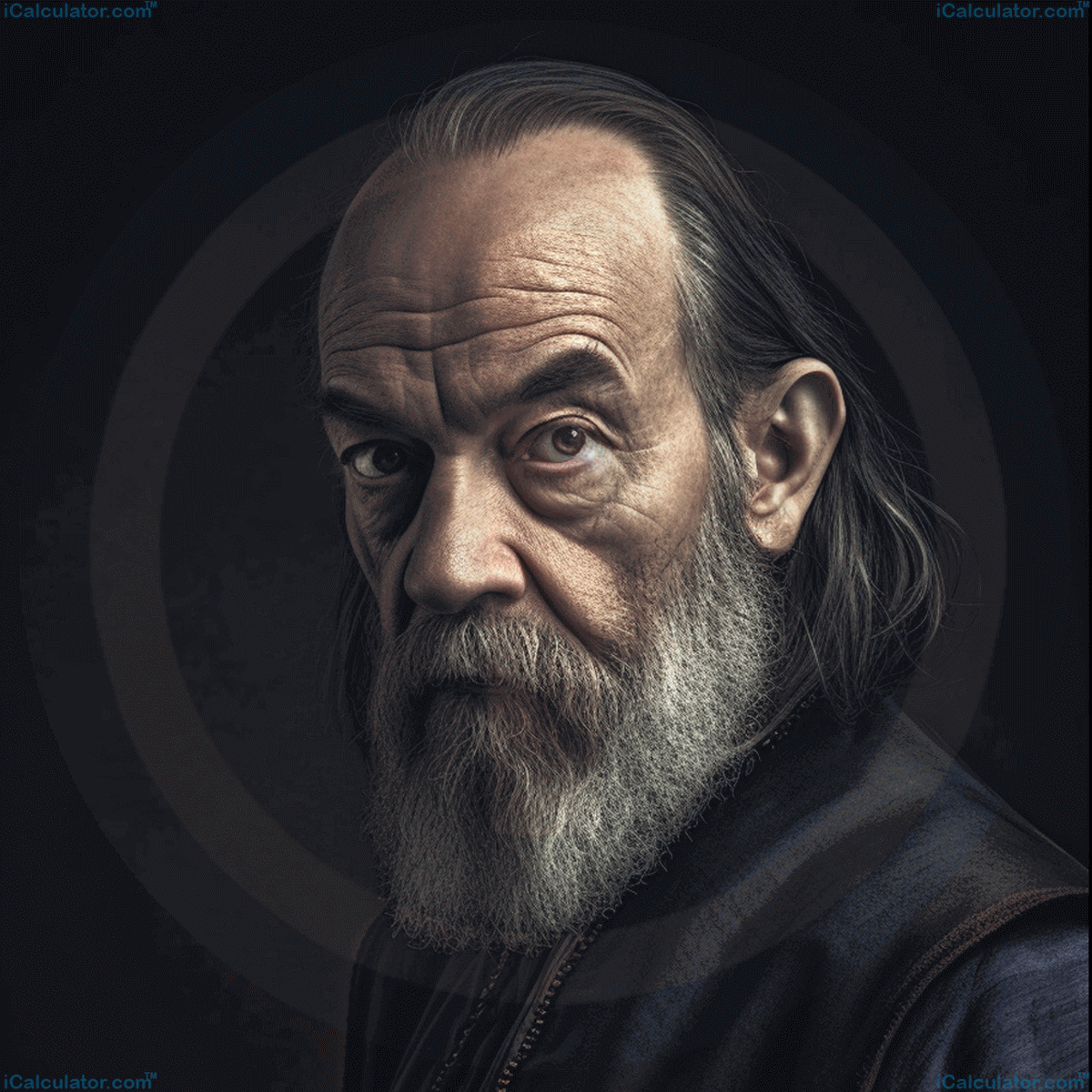Menu
Galileo Galilei

Please provide a rating, it takes seconds and helps us to keep this resource free for all to use
About Galileo Galilei
Galileo Galilei was born on February 15, 1564, in Pisa, Italy, and died on January 8, 1642, in Arcetri, Italy. Known as the "father of modern science," he made major contributions to the fields of physics, astronomy, cosmology, mathematics, and philosophy.
Galileo never married but had three children with Marina Gamba. His children were born out of wedlock, which led to some complexities in their upbringing and societal status. Galileo lived in various places throughout Italy, including Pisa, Padua, and Florence. He studied at the University of Pisa but left without a degree.
His fascination with the natural world, driven by a profound desire to understand the workings of the universe, motivated him to pursue a career in the sciences. His scientific curiosity was not without consequences, as his heliocentric views led to his infamous conflict with the Catholic Church.
Galileo's Discoveries
Galileo made significant strides in the field of astronomy. His improvements to the telescope allowed him to make numerous observations that fundamentally challenged the prevalent geocentric model of the universe. He discovered the four largest moons of Jupiter, observed the phases of Venus, and studied sunspots and the rugged lunar surface, all of which supported the heliocentric model.
In physics, Galileo laid the groundwork for the laws of motion later formalized by Isaac Newton. He challenged Aristotelian physics, notably through his experiments on falling bodies and projectile motion.
Galileo's Key Achievements
Galileo's contributions significantly influenced the scientific revolution. His rigorous observational method and use of experimentation are cornerstones of the modern scientific method. His support for Copernican heliocentrism, despite his trial and house arrest by the Inquisition, demonstrated his unyielding commitment to empirical truth.
Galileo's Formulas
Galileo did not formulate mathematical laws in the way we use them today. However, his work paved the way for such formulations by others like Newton. One of Galileo's most crucial contributions is his work on the motion of falling bodies. He essentially stated that the distance covered by a falling body is proportional to the square of the elapsed time.
Introduction to the formula:
Where:
- d: The distance covered
- g: The acceleration due to gravity
- t: The time elapsed
Galileo Galilei Tutorials and Calculators
The following tutorials and calculators are influenced by the work the great physicist Galileo Galilei, each calculator contains a tutorial that explains Galileo Galilei in the field
- Physics Kinematics Lesson 3.12.1 - What is a projectile?
- Physics Desity and Pressure Lesson 9.4.2 - Air (Atmospheric) Pressure
- Physics Relativity Tutorial 18.1 - Galilean Transformations. Einstein's Postulates and Newton's Laws
- Physics Cosmology Lesson 22.1.5 - The Moon and Other Natural Satellites
- Conical Pendulum Calculator
- Displacement Calculator
- Maximum Height of a Projectile Calculator
- Momentum Calculator
- Rotational Velocity of a Star Calculator